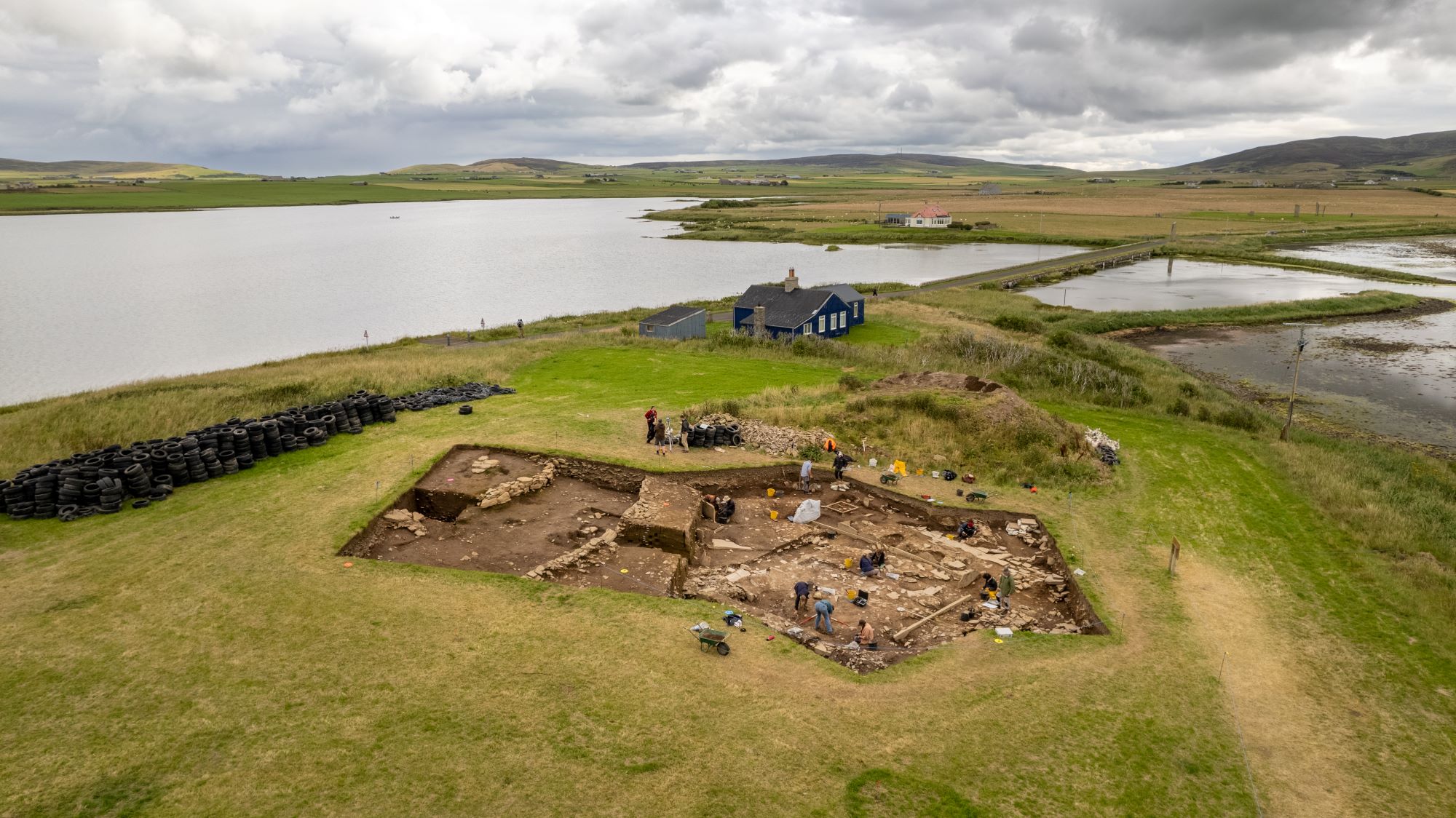Funding secured for environmental archaeology research centre in Orkney
The UHI Archaeology Institute has secured £1.6 million funding to establish a world-class centre for environmental archaeology in Orkney.
The Archaeology and Environment Science (AEonS) project is in partnership with Orkney Museums, Historic Environment Scotland (HES), Glasgow University, Archaeology Scotland, the Scotland’s Coastal Archaeology and the Problem of Erosion (SCAPE) team based at St Andrew’s University, and the University of Southampton.
The facility will include specialist environmental archaeology laboratories, allowing the scientific study of plant and animal remains, together with ancient soils and sediments fundamental to understanding the past. It will also host new imaging equipment for creating digital records of archaeological artefacts.
Although based in Orkney, the centre will enable partners, visiting researchers, museums, commercial units, community groups, and UHI students access to a central research hub.
It will be supported by a mobile laboratory and use of the HES Engine Shed facility in Stirling that will enhance the delivery of projects across the Highlands and Islands and more widely through Scotland. The mobile laboratory will be available for outreach events hosted by community groups and schools as well as to support research fieldwork across Scotland.
Professor Ingrid Mainland, of the UHI Archaeology Institute, said:
“Environmental archaeology is recognised as being an important discipline, not only in understanding the effects of natural environmental changes and human impact in the past but also in looking forward through researching subjects such as biodiversity change, sustainability, economic strategies, rewilding and futureproofing natural resources. This Orkney-based environmental research has true potential for global reach."
“Unfortunately, across the UK expertise and facilities for environmental archaeology research are diminishing. Gaps in capacity are emerging at national and regional scales particularly in specialisms, such as soil science, zooarchaeology and archaeobotany, which may lead to generational gaps in these specialisms and a national inability to take such research forward in the future."
“The AEonS facility and partnership has been established to meet these needs and ensure that skills gaps and shortages are met to provide a sustainable future for Scotland in Environmental Archaeology.”
AEonS is part of the Research Infrastructure for Conservation and Heritage Science (RICHeS) programme, funded by the UKRI Arts and Humanities Research Council through the UKRI Infrastructure Fund.
The UKRI Arts and Humanities Research Council launched the RICHeS programme on Tuesday 1 October 2024. This saw a major £80m research and innovation investment that will support the latest technology and scientific equipment to safeguard heritage for future generations and boost the UK’s heritage economy.
Thirty-one heritage science projects across the UK are sharing £37 million from the first tranche of funding through the programme.
For further details/interview, contact: Professor Jane Downes.
- The UHI Archaeology Institute is a teaching and research organisation dedicated to advancing our understanding of the historic environment through the creation, interpretation and dissemination of archaeological knowledge. Founded in 2015, the institute provides a locus for innovative research, university education and lifelong learning in outstanding heritage environments. Based at UHI Orkney, the institute also has research and teaching staff in Shetland and the Western Isles.
- The UKRI Arts and Humanities Research Council (AHRC) funds internationally outstanding independent researchers across the whole range of the arts and humanities: history, archaeology, digital content, philosophy, languages and literature, design, heritage, area studies, the creative and performing arts, and much more. The quality and range of research supported by AHRC works for the good of UK society and culture and contributes both to UK economic success and to the culture and welfare of societies across the globe.
